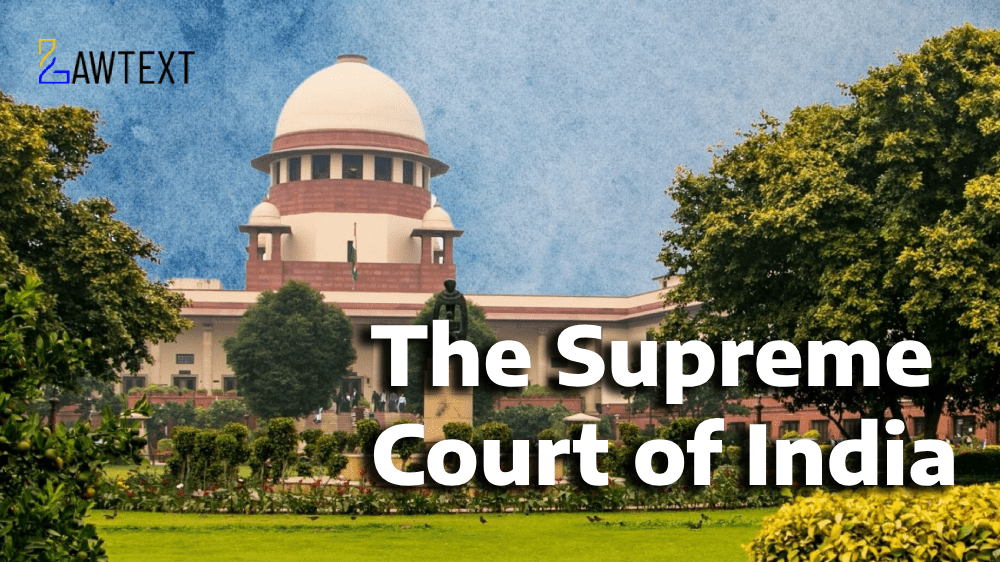"Supreme Court Dismisses Appeals: Reinforces Aircraft Act as a Complete Code" "Ensuring adherence to specialized aviation laws while quashing FIRs against MPs for alleged ATC room trespass."

CASE NOTE & SUMMARY
The Supreme Court dismissed criminal appeals challenging the quashing of an FIR registered under the Indian Penal Code and Aircraft Act. The Court upheld that the Aircraft Act, 1934, is a complete code, mandating procedural compliance for initiating criminal proceedings related to aviation.
- FIR against MPs and others under IPC Sections 336, 447, 448 and Sections 10 & 11A of the Aircraft Act quashed.
- Prosecution under the Aircraft Act requires a complaint by an authorized officer as per Section 12B.
- High Court’s intervention under Article 226 and Section 482 of CrPC justified to prevent abuse of process.
-
Background of the Case
- An FIR was registered against the respondents for allegedly trespassing into the ATC room of Deoghar Airport and coercing clearance for a chartered flight after sunset (beyond operational hours).
-
FIR Details and Allegations
- Allegations include security breaches, trespass, and pressure exerted on ATC personnel to obtain flight clearance under unsafe conditions.
- FIR invoked IPC Sections 336 (endangering safety), 447 (criminal trespass), and 448 (house-trespass) alongside Sections 10 and 11A of the Aircraft Act, 1934.
-
High Court’s Decision
- The High Court quashed the FIR, citing malafides and abuse of process. It held that the Aircraft Act provides a complete procedural code, which was bypassed.
-
Supreme Court’s Review
- The Supreme Court examined the Aircraft Act provisions and ruled that the Act supersedes general law under IPC for aviation-specific incidents.
-
Role of Specialized Authorities
- As per Section 12B of the Aircraft Act, complaints must be initiated by authorized aviation officials, and not by local police.
Acts and Sections Discussed:
Ratio Decidendi:
-
Aircraft Act Prevails Over IPC
- The Aircraft Act is a special law and constitutes a complete procedural code, overriding general provisions under IPC.
-
Section 12B Compliance Required
- Any prosecution under the Aircraft Act mandates prior sanction or complaint by aviation authorities.
-
High Court’s Power to Quash FIR
- The High Court rightly quashed the FIR under its powers to prevent abuse of process and to secure justice.
-
Facts Do Not Establish IPC Offences
- Allegations in the FIR did not substantiate charges under Sections 336, 447, or 448 IPC.
Subjects:
-
Aviation law, Special versus general laws, Criminal procedure, High Court quashing powers.
-
Aircraft Act 1934, FIR Quashing, Supreme Court, Aviation Safety, IPC Sections 336/447/448, Special Law, Judicial Precedent.
ISSUE OF CONSIDERATION
STATE OF JHARKHAND VERSUS DR. NISHKANT DUBEY & ORS.
Citation: 2025 LawText (SC) (1) 213
Case Number: CRIMINAL APPEAL NO. 5475 OF 2024 (Arising out of Special Leave Petition (Crl.) No.7844/2023 WITH CRIMINAL APPEAL NO. 5476 OF 2024 (Arising out of Special Leave Petition (Crl.) No.7816/2023 AND CRIMINAL APPEAL NO. 5477 OF 2024 (Arising out of Special Leave Petition (Crl.) No.7706/2023
Date of Decision: 2025-01-21
Case Title: STATE OF JHARKHAND VERSUS DR. NISHKANT DUBEY & ORS.
Before Judge: [ABHAY S. OKA J. , MANMOHAN J.]
Appellant: STATE OF JHARKHAND
Respondent: DR. NISHKANT DUBEY & ORS.

